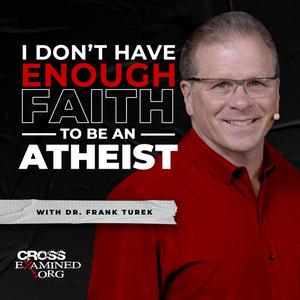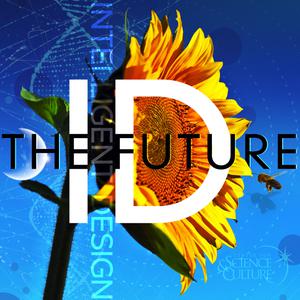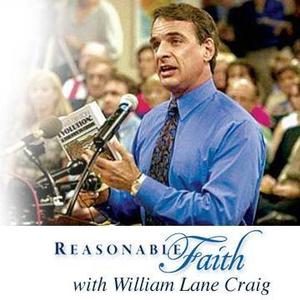
Reasons to Believe Podcast
Reasons To Believe
- 50 minutes 18 secondsStars, Cells, and God | Xenotransplant Success and “Big Ring” of Galaxies Found
*Unfortunately we encountered audio problems at the time this episode was recorded*
Join Hugh Ross and Jeff Zweerink as they discuss new discoveries taking place at the frontiers of science that have theological and philosophical implications, including the reality of God’s existence.
Xenotransplant Success
Worldwide, millions of people need organ transplants and many die while waiting. It is impossible to scale up human organ donation rates to meet the demand. However, recent success in xenotransplantation may solve the shortfall. Surgical transplants of pig hearts, livers, and kidneys all show promise of (at least temporary) function and no signs of organ rejection. Xenotransplantation provides yet more evidence that God designed the higher animals to enhance human health and well-being.
References:
PODCAST LINKS:
First Pig Kidney Transplant in a Person: What It Means for the Future
First Pig Liver Transplanted into a Person Lasts for 10 Days
First Pig-to-Human Heart Transplant: What Can Scientists Learn?
Monkey Survives for Two Years after Gene-Edited Pig-Kidney Transplant
YOUTUBE LINKS:
Smriti Mallapaty and Max Kozlov, “First Pig Kidney Transplant in a Person: What It Means for the Future,” https://www.nature.com/articles/d41586-024-00879-y
Smriti Mallapaty, “First Pig Liver Transplanted into a Person Lasts for 10 Days,” https://www.nature.com/articles/d41586-024-00853-8
Sara Reardon, “First Pig-to-Human Heart Transplant: What Can Scientists Learn?,” https://www.nature.com/articles/d41586-022-00111-9
Max Kozlov, “Monkey Survives for Two Years after Gene-Edited Pig-Kidney Transplant,” https://www.nature.com/articles/d41586-023-03176-2
“Big Ring” of Galaxies Found
Astronomers recently announced the discovery of a “Big Ring” of galaxy clusters. According to calculations based on scientists’ best understanding of the universe, the size of this ring exceeds the largest size structure that could possibly form, and it joins a class of about 10 structures that are “too big.” While some people might take this find as evidence that our current understanding of the universe (size, age, composition, etc.) is wrong, the discovery highlights how well we comprehend the universe and provides insight that will direct us into a deeper understanding. It also affirms the biblical prediction that we live in an orderly, reliable, and understandable creation.
References:
PODCAST LINKS:
An Impossibly Huge Ring of Galaxies Might Lead Us to New Physics. Here’s How
Giant Ring? Giant Arc? These “Structures” May Not Even Be Real
YOUTUBE LINKS:
Keith Cooper, “An Impossibly Huge Ring of Galaxies Might Lead Us to New Physics. Here’s How,” https://www.space.com/big-ring-galactic-superstructure-celestial-anomaly
Ethan Siegel, “Giant Ring? Giant Arc? These “Structures” May Not Even Be Real,” https://bigthink.com/starts-with-a-bang/giant-ring-arc-structures-not-real/
1 May 2024, 3:00 pm - 40 minutes 41 secondsClear Thinking | 8 Aspirational Qualities of the Christian Mind, Part 229 April 2024, 3:00 pm
- 56 minutes 56 secondsStars, Cells, and God | ERVs and Embryo Development and Just the Right Amount of Water
Episode Description:
Join Fazale “Fuz” Rana and Jeff Zweerink as they discuss new discoveries taking place at the frontiers of science that have theological and philosophical implications, including the reality of God’s existence.
ERVs and Embryo Development
For many people, the shared ERV (endogenous retrovirus) sequences in the human and great ape genomes evince common ancestry and an evolutionary origin for humanity. Yet, new discoveries about the physiological role of ERVs suggest another interpretation for why they appear in the human genome. In this episode, biochemist Fuz Rana discusses the latest insight into ERV molecular biology and explores the question, “Can a creation model explain the occurrence of ERV sequences in the human genome?”
References:
PODCAST LINK:
Endogenous Retroviruses Shape Pluripotency Specification in Mouse Embryos
Additional Resource:
Insights about Suppressyn Support Creation Model View of ERVs
YOUTUBE LINK:
Sergio de la Rosa et al., “Endogenous Retroviruses Shape Pluripotency Specification in Mouse Embryos,” https://www.science.org/doi/10.1126/sciadv.adk9394
Fazale Rana, “Insights about Suppressyn Support Creation Model View of ERVs,” https://reasons.org/explore/blogs/the-cells-design/insights-about-suppressyn-support-creation-model-view-of-ervs
Just the Right Amount of Water
Most people know that life depends on Earth’s oceans, but the continents play an equally critical role in Earth’s capacity to support life. However, a planet’s ability to have land relies on having just the right amount of water. Too little and there are no oceans at all but too much and the continents never rise above the ocean’s surface. One factor that influences the amount of surface water is the planet’s capacity to store water in its interior. Recent studies indicate that the ancient earth could store much less water than today. Therefore, doubling the amount of water on Earth would have prevented the formation of continents that rise above the oceans and stymied Earth’s capacity to support life.
References:
PODCAST LINK:
YOUTUBE LINK:
Junjie Dong et al., “Constraining the Volume of Earth’s Early Oceans with a Temperature-Dependent Mantle Water Storage Capacity Model,” https://doi.org/10.1029/2020AV000323
24 April 2024, 3:00 pm - 55 minutes 9 secondsClear Thinking | 8 Aspirational Qualities of the Christian Mind, Part 122 April 2024, 3:00 pm
- 51 minutes 42 secondsStars, Cells, and God | AI Abilities Emerging or Not?
Join Jeff Zweerink and Josh Swamidass as they discuss new discoveries taking place at the frontiers of science that have theological and philosophical implications, including the reality of God’s existence.
AI Abilities Emerging or Not?
One concern regarding the development of artificial intelligence (AI) relates to the emergence of unpredictable features that arise as the systems grow in scale. Researchers consider an “emergent ability” as something that the AI has routinely failed to accomplish but suddenly performs well as the system grows in size (either from hardware or software growth). A number of papers claiming emergent abilities populate scientific literature. However, a recent study shows that these “emergent” abilities often reflect poorly designed measurement metrics or insufficient statistics. Better metrics and statistics remove the indicators of emergence. In this episode, computational biologist and physician Josh Swamidass and astrophysicist Jeff Zweerink discuss the details surrounding this issue and offer some insights from a Christian perspective.
PODCAST LINK:
Are Emergent Abilities of Large Language Models a Mirage?
YOUTUBE LINK:
Rylan Schaeffer, Brando Miranda, and Sanmi Koyejo, “Are Emergent Abilities of Large Language Models a Mirage?,” https://arxiv.org/abs/2304.15004
19 April 2024, 6:00 pm - 38 minutes 33 secondsClear Thinking | Chemistry & Origin of Life: Interview with Steve Baertschi15 April 2024, 3:00 pm
- 58 minutes 30 secondsStars, Cells, and God | Growing Human Organs in Pigs and Mitigating Air Pollution
Join Fazale “Fuz” Rana and Hugh Ross as they discuss new discoveries taking place at the frontiers of science that have theological and philosophical implications, including the reality of God’s existence.
Growing Human Organs in Pigs
In the fall of 2023, a team of researchers from China published the results of a proof-of-principle study that demonstrated for the first time that it’s possible to grow humanized kidneys in a fetal pig. This work provides the means to study the process of organogenesis that may also alleviate the shortage of organs available for human transplant procedures. However, this research raises all sorts of questions that could be summarized with a single question: “Should we play God?”
In this episode, biochemist Fuz Rana describes the work of the Chinese researchers and offers a Christian perspective on the creation of human-animal chimeras.
Mitigating Air Pollution
Air pollution level in India’s capital territory of Delhi is more than 25 times greater than the maximum human tolerable level set by the World Health Organization (WHO). This pollution is called PM2.5 (inhalable particles with diameters of 2.5 micrometers or less) and is almost entirely composed of black carbon soot, mineral dust, sulfates, nitrates, ammonia, and sodium chloride. Scientists at WHO have determined that the average Indian living in Delhi would live 11.9 years longer if the PM2.5 level there were reduced to WHO’s maximum limit. Nearly all of India’s PM2.5 air pollution comes from the burning of coal, wood, biomass, diesel, gasoline, and oil, in that order. Replacing these fuel sources with natural gas would eliminate all of India’s PM2.5 except for the small contribution from road and construction dust. This replacement would also immediately reduce carbon greenhouse gas emissions by nearly half.
PODCAST LINKS:
Additional Resources:
A Theology for Synthetic Biology, Part 1
A Theology for Synthetic Biology, Part 2
YOUTUBE LINKS:
Jiaowei Wang et al., “Generation of a Humanized Mesonephros in Pigs from Induced Pluripotent Stem Cells via Embryo Complementation,” https://pubmed.ncbi.nlm.nih.gov/37683604/
Additional Resources:
Fazale Rana, “A Theology for Synthetic Biology, Part 1,”
https://reasons.org/explore/publications/articles/a-theology-for-synthetic-biology-part-1-of-2
Fazale Rana, “A Theology for Synthetic Biology, Part 2,” https://reasons.org/explore/publications/articles/a-theology-for-synthetic-biology-part-2-of-2
PODCAST LINKS:
Air Quality Life Index 2023: Annual Update (August 2023)
Air Quality Life Index, India Fact Sheet (2023)
The Relationship between Fine Particle Matter (PM2.5) Exposure and Upper Respiratory Tract Diseases
YOUTUBE LINKS:
Michael Greenstone and Christa Hasenkopf, Air Quality Life Index 2023: Annual Update (August 2023),https://aqli.epic.uchicago.edu/wp-content/uploads/2023/08/AQLI_2023_Report-Global.pdf
Air Quality Life Index, India Fact Sheet (2023), https://aqli.epic.uchicago.edu/wp-content/uploads/2023/08/India-FactSheet-2023_Final.pdf
Łukasz Zaręba et al., “The Relationship between Fine Particle Matter (PM2.5) Exposure and Upper Respiratory Tract Diseases,” https://www.mdpi.com/2075-4426/14/1/98
10 April 2024, 3:00 pm - 49 minutes 10 secondsClear Thinking | Take Up and Read: Ken's Apologetics Books, Part 48 April 2024, 3:00 pm
- 1 hour 6 minutesStars, Cells, and God | CRISPR Update and Two Noteworthy AI Finds
Join Fazale “Fuz” Rana and Jeff Zweerink as they discuss new discoveries taking place at the frontiers of science that have theological and philosophical implications, including the reality of God’s existence.
CRISPR Update
In December of 2023, the FDA approved two revolutionary new treatments for the blood disorders sickle cell anemia and ß-thalassemia, both based on gene-editing technology. This approval represents an important milestone for gene therapy and the treatment of thousands of genetic disorders. It also serves as a stepping stone for human enhancements and adds to the legitimacy of transhumanism.
In this episode, biochemist Fuz Rana describes these new gene therapies and discusses the ethical issues connected to them. He also offers a Christian response to the prospects of human enhancements and transhumanism.
Two Noteworthy AI Finds
As the field of artificial intelligence (AI) advances, research continues to show both the promise and peril of using AI. For example, most AIs work well within a single domain (e.g., classifying signs, responding to language, playing a game). Recent work in game play resulted in an AI capable of mastering multiple games that in the past required different approaches. However, the AI (called Student of Games) mastered multiple different games using a single algorithm. This development represents a significant step (the promise) on the journey to make an artificial general intelligence. Yet, other research demonstrates that a wide variety of AIs are highly vulnerable to malicious attacks. Specifically, the algorithms AIs use to recognize images are easily exploited and manipulated (the peril).
In this episode, astrophysicist Jeff Zweerink explains the breakthrough and why a Christian perspective is needed when considering such advances.
PODCAST LINKS:
FDA Approves First CRISPR Editing Treatment for Sickle Cell Disease
Sickle Cell CRISPR ‘Cure’ Is the Start of a Revolution in Medicine
Additional Resources:
Fazale Rana, Humans 2.0
PODCAST LINKS:
Student of Games: A Unified Learning Algorithm for Both Perfect and Imperfect Information Games
AI Networks Are More Vulnerable to Malicious Attacks Than Previously Thought
QuadAttack: A Quadratic Programming Approach to Ordered Top-K Attacks
3 April 2024, 3:00 pm - 52 minutes 14 secondsClear Thinking | Take Up and Read: Ken's Apologetics Books, Part 31 April 2024, 3:00 pm
- 58 minutes 47 secondsStars, Cells, and God | God's Hand in Creation
In this special episode, we replay a recorded conversation between prominent astronomer Dr. David Block (professor emeritus of mathematics and astronomy at the University of Witwatersrand and the director of RTB Africa) and world-renowned astronomer Giovanni Fazio (senior physicist at the Center for Astrophysics-Harvard & Smithsonian and a lecturer in the department of astronomy at Harvard University). This wide-ranging conversation between two friends includes their collaboration studying the Andromeda galaxy, their perspectives on God’s handiwork in creation, and Dr. Fazio’s groundbreaking contributions to infrared astronomy.
References:
PODCAST LINK:
Professor David Block’s YouTube Channel
YOUTUBE LINKS:
Professor David Block’s YouTube channel https://www.youtube.com/@professordavidblock5038
27 March 2024, 3:00 pm - More Episodes? Get the App
Your feedback is valuable to us. Should you encounter any bugs, glitches, lack of functionality or other problems, please email us on [email protected] or join Moon.FM Telegram Group where you can talk directly to the dev team who are happy to answer any queries.
 I Don't Have Enough FAITH to Be an ATHEIST
I Don't Have Enough FAITH to Be an ATHEIST
 Intelligent Design the Future
Intelligent Design the Future
 Defenders Podcast
Defenders Podcast
 Reasonable Faith Podcast
Reasonable Faith Podcast
 The Cold-Case Christianity Podcast
The Cold-Case Christianity Podcast
 Stand to Reason Weekly Podcast
Stand to Reason Weekly Podcast